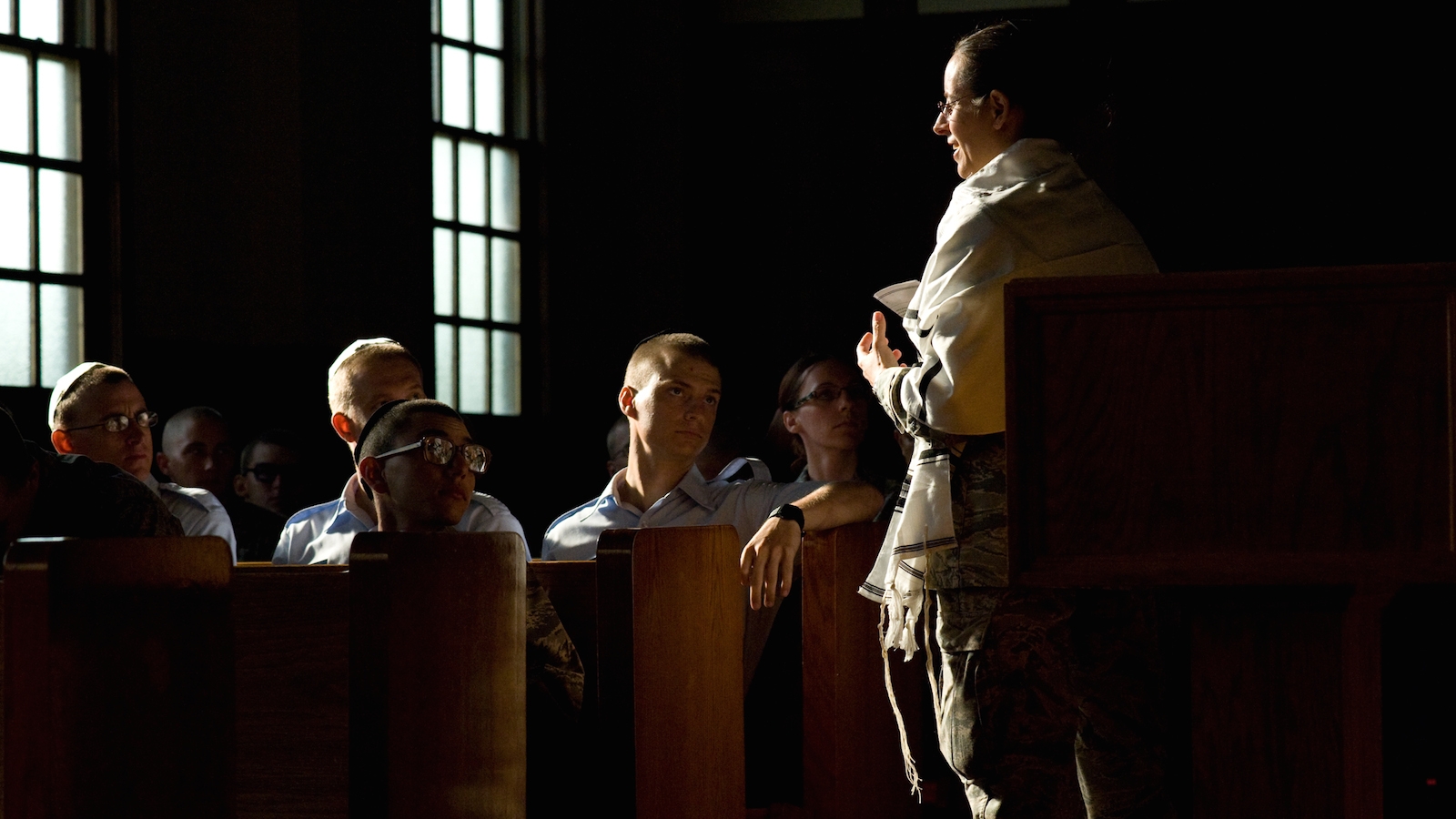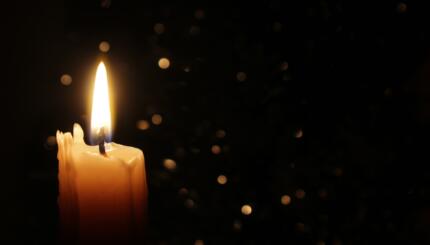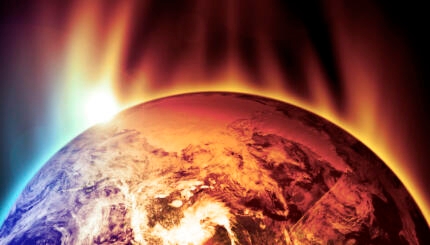Generally speaking, it is the Sabbath of the house of Shammai that directly reflects this concept [of the Sabbath as preview of the world to come] with amazing literalness. It is not that the Shammaites were more rigorous in their views, but rather that they sought to translate the concept Sabbath – Olam Haba [“world to come”] into literal reality. While the Hillelites accept this basic notion, they cannot accede to its literal rendering. To do so would be to make the Sabbath an impossibly oppressive day and defeat the very purpose of the Sabbath.
A few examples drawn from the Sabbath halacha of Beth Shammai should suffice to illustrate the direct line that links it to its source, the legendary-mythological concept [of the Sabbath as foretaste of the perfected world].
Killing is Inconsistent with Harmony
We read in the Tosefta [a collection of rabbinic rulings from the centuries just prior to 200 C.E., parallel to the ], “Beth Shammai says: ‘One does not kill a moth on the Sabbath.’ Beth Hillel permits.” The Shammaite view is elaborated upon by one of its most distinguished adherents, Rabbi Eliezer ben Hyrcanus (in the Babylonian , 12a), “He who kills a vermin on the Sabbath is as if he slew a camel.” The view reflects the notion that the perfect peace and harmony that will prevail between man and all living creatures in the world-to-come must prevail on the Sabbath, the foretaste of that world.
Things Which Will Not Be Necessary in the World to Come
In one statement of the house of Shammai we find a number of apparently disparate matters joined together as activities that are forbidden on the Sabbath. At first glance, one is puzzled why these seemingly unrelated activities should be included in a single category. If, however, one bears in mind the single concept from which they flow, their mutual relationship becomes apparent.

Help us keep Jewish knowledge accessible to millions of people around the world.
Your donation to My Jewish Learning fuels endless journeys of Jewish discovery. With your help, My Jewish Learning can continue to provide nonstop opportunities for learning, connection and growth.
What do they have in common? None of them will be necessary in the world-to-come, hence they are forbidden on the Sabbath. The statement reads “[the house of] Shammai says: ‘Contributions for the poor are not allotted on the Sabbath in the synagogue, even a dowry to marry an orphan young man to an orphan young woman. Quarrels between husband and wife are not adjudicated and one does not pray for the sick on the Sabbath.’ The house of Hillel permits these activities.” (Tosefta Shabbat 16:22)
In view of the future material abundance, there will obviously be no poor and hence no need for charity. There will be total harmony between man and man, hence the prohibition of patching up quarrels between husband and wife. There will be no illness, hence one should not pray for the sick on the Sabbath. In the latter instance, Beth Shammai goes even further and forbids visiting the sick on the Sabbath.
Though the house of Hillel rejects the Shammaite view in these matters, it is an undisputed principle of the Sabbath halacha that there is no mourning on the Sabbath. With rigorous consistency, Beth Shammai prohibits the consolation of mourners on the Sabbath (Babylonian Talmud Shabbat 12a).
Tools of War May Not Be Carried
No halacha illustrates more clearly the tie between the Sabbath and the world-to-come than the following mishnaic statement (Mishnah Shabbat 3:4), “A man should not go out on (the Sabbath) carrying a sword, a bow, a cudgel, a stick, or a spear…. Rabbi Eliezer says, ‘These things may be considered adornments’ (and hence their carrying is permitted). The Sages say, ‘They are a disgrace, as it is written, “And they shall beat their swords into plowshares, and their spears into pruning hooks; nation shall not lift up sword against nation, neither shall they learn war anymore.”‘” The expressed association between the Sabbath and the future time underscored in this Mishnah makes interpretation superfluous.
No Deceit in the World to Come
The halacha states that “he who during the course of the week has bought produce from an am ha’aretz [a common person, not schooled in rabbinic doctrine] suspected of not giving the required tithe, and the purchaser forgot to set aside the tithe, the latter may ask the vendor on the Sabbath if the tithe has already been given and accept his word.” (During the week, the am ha’aretz‘s word would not be accepted.) Why may he be believed on the Sabbath? The [Palestinian] Talmud (Shabbat 4:1) replies, “Because the reverence for the Sabbath is upon him” and, presumably, he would not lie. One is prompted to ask the obvious question: What relationship is there between the Sabbath and truth telling? I suggest that here, too, the association of Sabbath to the-world-to-come is at work. For has not the Prophet declared (Zephaniah 3:13), “The remnant of Israel shall do no iniquity; they shall not speak falsehood, and no deceitful tongue shall be found in their mouth.” (En passant, I have found no other source for the notion that a Jew does not lie on the Sabbath, though I am mindful, of course, of the Yiddish proverb to the effect that one must not tell a falsehood on the Sabbath.) In any event, if in the end of time all falsehood will vanish, then even now, on the Sabbath, a man should speak but the truth.
Light, the Sabbath, and the World to Come
The aggadic-mythological concept of the Sabbath finds its reflection in one of the most ancient of all Sabbath observances, the kindling of the Sabbath lights. The Mishnah (Shabbat 2:1) already presumes the practice and merely asks, “With what may the Sabbath lamp be kindled?” Various scholars have sought the source of the custom in ancient rabbinic literature, but all that the search has revealed is a number of im that merely indicate the antiquity of the practice without revealing its origin. Indeed, the Midrash clearly states (Lekah Tov, Vayakhel 8), “Israel had an ancient tradition harking back to our teacher Moses to kindle the Sabbath lights.” When the [Babylonian] Talmud declares the kindling of the Sabbath lights to be a (in the technical meaning of the term [“commandment”]) (Shabbat 25b), its intent is correctly grasped by Maimonides when he writes (Mishneh Torah, Laws of Shabbat 5:1), “This is neither a permissive matter (reshut)…nor a commandment (mitzvah), but rather a duty (chovah).” All of which is to say that the practice is, strictly speaking, neither biblically nor rabbinically ordained.
I suggest its origin is in the same aggadic concept to which I have repeatedly referred. The Midrash, in a number of diverse sources, interprets the Sabbath lights as symbolic of the supernal light that once shone in primordial time and which will again appear in the future time. The Midrash (Bereshit Rabbah 12:6) asserts that, out of consideration for the Sabbath, God caused the sun to shine through that first Friday evening in the Garden of Eden though Adam had, by reason of his disobedience, deserved that he be deprived of that light. Thus, the Midrash (Bereshit Rabbah 11:2) interprets the verse, “And God blessed the seventh day,” with the blessing of light.
When the Midrash asserts that “the light of a man’s countenance all the days of the week is not to be compared to the light that his countenance reflects on the Sabbath,” the statement takes on meaning if we assume that the reference is to the supernal light which Adam enjoyed through the first Sabbath and of which he was deprived only after the outgoing of the Sabbath. Finally, the Midrash (Yalkut, Be-ha’alotkha, beginning) links the observance with reward in the messianic days, “If you observe the kindling of the Sabbath lights, I will show you the lights of Zion…as it is said, ‘The sun shall no more be light for you by days, nor shall the brightness of the moon shine for you, but the Lord shall be your everlasting light.'”
Excerpted with permission from the Fall 1967 issue (Vol. 16, no. 4) of Judaism, published by the American Jewish Congress.
Sign up for My Jewish Learning’s RECHARGE, a weekly email with a collection of Shabbat readings and more to enhance your day of rest experience.



